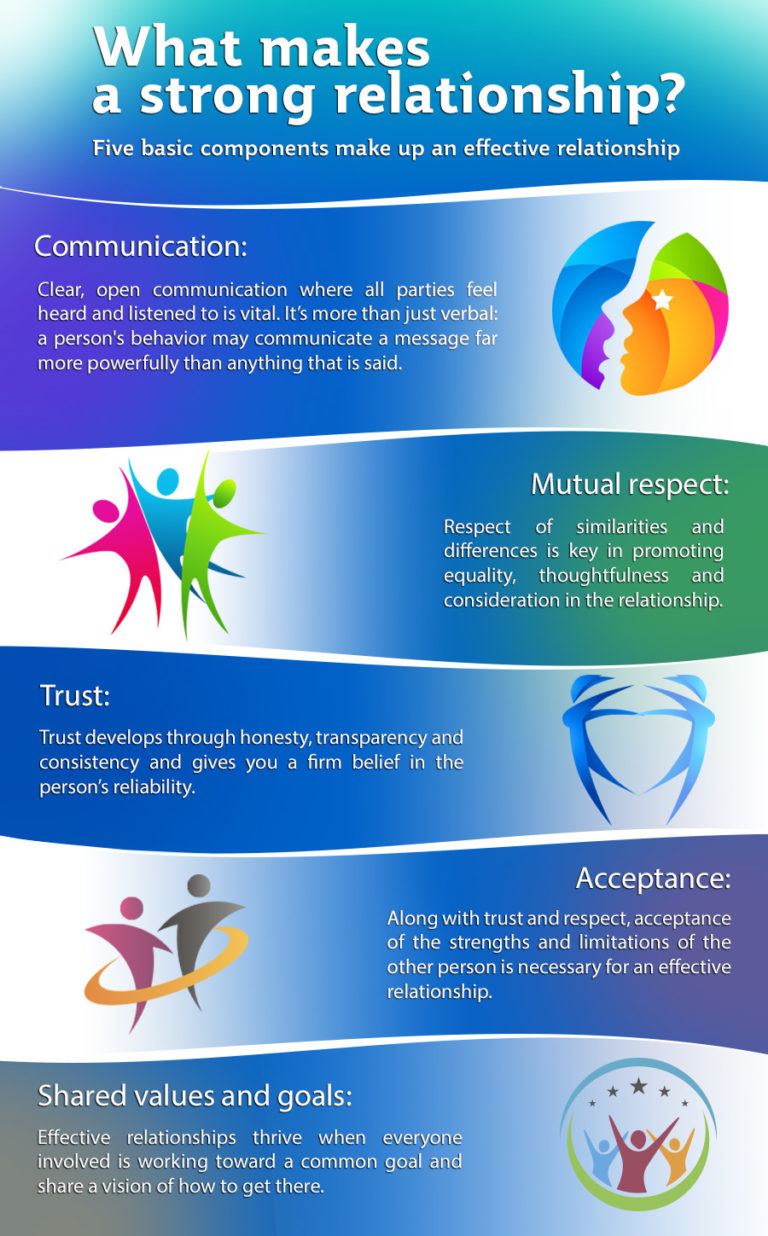Effective Communication leads to effective Leadership
Communication leads to effective leadership by fostering better understanding, collaboration, and the ability to motivate and inspire others. As leaders effectively communicate their goals, expectations, and vision, they build trust, create alignment, and empower their teams to achieve success together.
Effective communication enables leaders to actively listen, provide constructive feedback, and adapt their communication style to connect with and engage their team members. Through open and transparent communication, leaders can effectively communicate expectations, resolve conflicts, address challenges, and celebrate successes.
Ultimately, effective leadership is built on a foundation of strong communication skills, enabling leaders to build relationships, inspire others, and achieve shared goals.
What Is Communication
Communication is the exchange of information, ideas, and emotions between individuals or groups. It is a process through which thoughts, feelings, and intentions are conveyed and understood. Effective communication involves clear and concise expression, active listening, and the use of appropriate verbal and non-verbal cues to ensure understanding.
What Is Effective Communication
Effective communication refers to the ability to convey information, ideas, and opinions in a clear, concise, and understandable manner. It involves actively listening to others, using appropriate verbal and non-verbal cues, and adapting communication style to the needs of the audience. Effective communication ensures that the intended message is accurately understood by the recipients, promoting mutual understanding and achieving desired outcomes.
What Is Leadership
Leadership is the ability to guide, motivate, and influence individuals or teams towards the achievement of common goals. Leaders provide direction, inspire others, and take responsibility for the success and well-being of their team members. Effective leadership involves setting a clear vision, making informed decisions, fostering a positive work environment, and empowering others to realize their full potential.
What Is Effective Leadership
Effective leadership goes beyond the capabilities of leading a team. It encompasses the ability to communicate, motivate, and inspire others effectively. An effective leader is someone who not only possesses strong leadership skills but also understands the importance of effective communication within their role. Effective leadership involves establishing clear goals, promoting teamwork, fostering trust and transparency, and continuously seeking ways to develop and support the growth of their team members.
Importance Of Effective Communication In Leadership
Communication plays a vital role in effective leadership. Leaders who are able to communicate effectively are more likely to succeed in their roles and drive positive outcomes within their organizations. Effective communication not only enables leaders to convey their vision and goals clearly but also fosters trust and transparency within the team. In this blog post, we will explore the impact of effective communication on leadership success, how it fosters trust and transparency, and how it helps in building strong relationships.
Impact Of Effective Communication On Leadership Success
Effective communication is a key factor in determining the success of a leader. When leaders communicate effectively, they are able to inspire and motivate their teams, ensuring that everyone is aligned with the organization’s goals. Clear communication empowers leaders to convey their expectations, provide guidance, and offer support to their team members. By effectively communicating the vision and objectives, leaders can drive progress and achieve desired outcomes.
How Effective Communication Fosters Trust And Transparency
Trust and transparency are crucial elements of successful leadership. Effective communication plays a pivotal role in fostering trust within a team. When leaders communicate openly and honestly, team members feel secure and valued. They perceive the leader as reliable and trustworthy, which leads to increased collaboration and productivity. Moreover, transparent communication ensures that team members are aware of organizational decisions and changes, fostering a sense of inclusion and mutual understanding.
Building Strong Relationships Through Communication
Strong relationships are the foundation of an effective team. Effective communication acts as a catalyst for building these relationships. Leaders who communicate openly and actively listen to their team members create an environment conducive to collaboration and teamwork. Through communication, leaders can establish rapport, understand individual strengths and weaknesses, and provide feedback and guidance that nurtures personal and professional growth. By building strong relationships, leaders are able to motivate and engage their team members, leading to higher levels of performance and success.
Key Communication Skills For Effective Leadership
Communication is the cornerstone of effective leadership. Whether it’s conveying a vision, providing feedback, or resolving conflicts, successful leaders rely on their communication skills to motivate and inspire their team. To truly excel in leadership, it’s crucial to develop key communication skills that can enhance your ability to connect with others, convey your ideas clearly, and understand the needs and perspectives of those around you. In this post, we will explore some of the essential communication skills that every effective leader must possess.
Active Listening And Empathy
Active listening and empathy are two interrelated skills that can greatly enhance your effectiveness as a leader. Active listening involves focusing solely on what the speaker is saying, without interrupting, judging, or formulating a response. By truly listening to others, you demonstrate respect and foster an open and trusting environment. This skill also includes paying attention to non-verbal cues, such as facial expressions and body language, which can provide valuable insights into a person’s thoughts and emotions.
Empathy, on the other hand, is the ability to understand and share the feelings and experiences of others. By putting yourself in someone else’s shoes, you can gain a deeper understanding of their perspectives, needs, and challenges. Empathy allows you to establish meaningful connections with your team members, build rapport, and address their concerns effectively. When leaders demonstrate empathy, they create an inclusive and supportive work environment, leading to increased trust and productivity.
Clear And Concise Verbal Communication
Clear and concise verbal communication is vital for effective leadership. As a leader, you must be able to articulate your thoughts, ideas, and directives in a way that is easily understood by your team. This involves using simple language, avoiding jargon or technical terms that might confuse others. Additionally, you should strive to be concise and to the point, conveying your message with clarity and brevity. By being clear and concise in your verbal communication, you minimize the chances of misunderstandings and ensure that everyone is on the same page.
Non-verbal Communication Cues And Body Language
Non-verbal communication cues and body language can convey powerful messages that words alone cannot. Leaders who are mindful of their non-verbal communication can use their body language to reinforce their message, show confidence, and build trust. Simple gestures such as maintaining eye contact, nodding to show understanding, and using open and welcoming body posture can significantly enhance your communication effectiveness. Remember, your non-verbal cues should align with your verbal message to ensure consistency and authenticity.
Written Communication And Effective Messaging
Written communication is another crucial skill for leadership success. Whether it’s communicating through emails, reports, or presentations, the ability to convey your message effectively in writing is essential. A clear and concise writing style, coupled with a well-structured message, ensures that your ideas are easily understood by your team. It’s important to pay attention to grammar, punctuation, and spelling to maintain professionalism and credibility. Additionally, tailoring your message to the intended audience and using an appropriate tone can significantly impact how your message is received.
Effective leaders recognize the importance of continuously honing their communication skills. By actively practicing active listening, demonstrating empathy, mastering clear and concise verbal communication, being mindful of non-verbal cues and body language, and developing strong written communication skills, leaders can inspire and motivate their team, build strong relationships, and drive success.
Foster Collaboration And Teamwork Through Communication
Effective leadership is not just about commanding and directing, but also about fostering collaboration and teamwork among team members. Communication plays a pivotal role in creating a positive and productive work environment, where individuals feel heard, valued, and motivated to achieve common goals. By building a culture of open communication, promoting effective communication in teams, and resolving conflicts through effective communication, leaders can create a strong foundation for collaboration and teamwork.
Building A Culture Of Open Communication
Open communication is the cornerstone of effective leadership. It fosters transparency, trust, and mutual understanding among team members. Leaders can build a culture of open communication in several ways:
- Encouraging an open-door policy, where team members feel comfortable approaching their leaders with ideas, questions, or concerns.
- Organizing regular team meetings or brainstorming sessions where everyone’s voice is heard and opinions are valued.
- Providing opportunities for feedback and suggestions, such as anonymous suggestion boxes or surveys, to ensure everyone has a chance to express themselves.
- Leading by example, by actively listening, providing constructive feedback, and being open to different perspectives.
- Ensuring that communication channels are easily accessible to all team members, whether through email, instant messaging, or collaborative platforms.
Promoting Effective Communication In Teams
Effective communication within teams is essential for collaboration and teamwork to thrive. To promote effective communication:
- Establish clear objectives and expectations: Clearly communicate the team’s goals, objectives, and the roles and responsibilities of each team member. This ensures that everyone is on the same page and understands what is expected of them.
- Cultivate active listening: Encourage team members to actively listen to one another, without interrupting or judging. This fosters empathy, understanding, and better collaboration.
- Encourage open and respectful communication: Create an environment where team members can freely express their thoughts and ideas, without fear of judgment or criticism. Encourage respectful dialogue and discourage negative or hostile communication.
- Use various communication channels: Different team members may prefer different communication channels. Ensure that communication channels, such as face-to-face meetings, emails, or project management tools, are used appropriately to accommodate everyone’s preferences.
- Provide regular updates and feedback: Keep team members informed about project progress, changes, and milestones. Provide constructive feedback to help individuals grow and improve performance.
Resolving Conflicts Through Effective Communication
Conflicts are inevitable in any team, but they can be resolved and even turned into opportunities for growth through effective communication. To resolve conflicts:
- Promote open dialogue: Encourage conflicting parties to express their views and feelings in a respectful and constructive manner. Create a safe space where each person feels heard and respected.
- Practice active listening: Listen attentively to each individual’s perspective, without interrupting or making assumptions. Paraphrase and summarize to ensure understanding.
- Seek common ground: Identify areas of agreement or shared goals and work towards finding a solution that meets the interests of all parties involved. Facilitate compromise and collaboration.
- Keep emotions in check: Encourage emotional intelligence and self-awareness. Remind team members to approach conflicts with a calm and rational mindset, focusing on the issue at hand rather than personal attacks.
- Follow up and monitor progress: After reaching a resolution, ensure that everyone is committed to implementing the agreed-upon solution. Regularly check in with individuals involved in the conflict to ensure ongoing communication and prevent recurring issues.
By actively fostering collaboration and teamwork through effective communication, leaders can create a positive work environment where individuals feel empowered and motivated to deliver their best. Open communication, effective communication within teams, and conflict resolution through communication are fundamental pillars for effective leadership.
Communication Strategies For Leading Remote Teams
Communication plays a crucial role in effective leadership, especially when leading remote teams. With the rise of remote work, it has become imperative for leaders to adopt communication strategies that transcend physical boundaries. In this section, we will explore various techniques and technologies that can help overcome the challenges of remote communication, while also ensuring clear expectations and goals are set.
Overcoming Challenges Of Remote Communication
Leading remote teams comes with unique challenges, but with the right approach, these obstacles can be overcome. In remote settings, there is a lack of face-to-face interaction, which can lead to miscommunication or misunderstandings. It’s important to address these challenges head-on to maintain effective communication within the team.
Here are some strategies to overcome the challenges of remote communication:
- Establish regular check-ins: Regular check-ins provide an opportunity for team members to connect, share updates, and address any concerns. This can be done through video conferencing or even asynchronous communication channels like email or project management tools.
- Encourage open communication: Foster an environment where team members feel comfortable expressing their thoughts and ideas. Encourage active participation during team meetings and provide feedback to keep the lines of communication open.
- Clarify expectations: Clearly communicate expectations for tasks, deadlines, and deliverables. This helps in avoiding any confusion or ambiguity among team members.
- Promote transparency: Keep team members informed about important decisions, changes, or updates. Transparent communication builds trust and ensures everyone is on the same page.
Utilizing Technology For Effective Remote Communication
With advancements in technology, the options for remote communication have expanded, making it easier to bridge the geographical gap between team members. Leveraging the right tools and platforms can significantly enhance the effectiveness of communication in remote teams.
Here are some technologies that can be utilized for effective remote communication:
- Video conferencing: Platforms like Zoom, Microsoft Teams, or Google Meet enable face-to-face interactions even when team members are physically distant. Video conferences can be used for team meetings, presentations, or one-on-one conversations.
- Project management tools: Tools like Trello, Asana, or Basecamp provide a centralized platform for task management, collaboration, and communication. Team members can track progress, assign tasks, and have discussions, ensuring everyone is on the same page.
- Instant messaging: Platforms like Slack or Microsoft Teams offer real-time messaging that enables quick and efficient communication. Team members can have group chats or direct messages, facilitating seamless collaboration.
- File-sharing platforms: Services like Google Drive or Dropbox allow team members to share documents, files, or resources easily. This ensures that everyone has access to the required information when needed.
Setting Clear Expectations And Goals Through Communication
Clear communication is essential for setting expectations and goals in remote teams. When team members are physically separated, it becomes even more crucial to establish and communicate these expectations effectively. This ensures that everyone is aligned and working towards a shared vision.
Here are some methods to set clear expectations and goals through communication:
- Provide detailed briefs and guidelines: When assigning tasks, provide clear instructions, expectations, and guidelines. This helps team members understand what is expected of them and ensures a common understanding.
- Have regular goal-setting sessions: Regularly review goals and milestones with the team. This allows for a collective understanding of what needs to be achieved and provides an opportunity to address any questions or concerns.
- Solicit feedback and opinions: Encourage team members to provide feedback or share their opinions on goals and expectations. This fosters a collaborative environment and allows for adjustments if necessary.
- Document goals and progress: Keep a record of goals, progress, and achievements. This helps in tracking progress and provides a reference point for future discussions or evaluations.
Effective Communication In Decision Making And Problem Solving
Effective communication is a crucial skill that every leader must possess. In the realm of decision making and problem solving, effective communication plays a vital role in ensuring successful outcomes. When leaders prioritize clear and concise communication, they are better equipped to gather and analyze information, facilitate discussions and brainstorming sessions, and communicate decisions and rationale effectively. Let’s delve into each of these areas and explore how effective communication leads to effective leadership.
Gathering And Analyzing Information Through Communication
Gathering relevant information is essential for making well-informed decisions and solving complex problems. Effective leaders understand the significance of communication in this process. They proactively seek out information from various sources, such as team members, experts, and stakeholders, utilizing different communication channels like meetings, interviews, and written communication.
- Ask thought-provoking questions to gain deeper insights
- Listen actively to understand different perspectives
- Clarify doubts and seek additional information
By leveraging effective communication, leaders can gather comprehensive and accurate information, enabling them to make well-informed decisions and drive effective problem-solving.
Facilitating Discussions And Brainstorming Sessions
Leadership involves not only making decisions but also involving the team in the decision-making process. Effective leaders create an environment that encourages open communication, collaboration, and creativity. They facilitate discussions and brainstorming sessions to tap into the diverse ideas and perspectives of team members.
- Engage everyone by encouraging active participation
- Create a safe space for sharing ideas and opinions
- Facilitate productive debates and discussions
By fostering effective communication, leaders can harness the collective intelligence of the team, leading to innovative solutions and collaborative decision-making.
Communicating Decisions And Rationale Effectively
Once a decision or solution is reached, effective leaders understand the importance of communicating it to the relevant stakeholders. This ensures transparency, builds trust, and helps gain support and commitment for the chosen path forward. Effective communication of decisions and rationale involves:
- Clearly articulating the decision and its underlying rationale
- Explaining the potential benefits and risks involved
- Addressing any concerns or questions raised
Leaders who communicate decisions effectively provide clarity, ensure alignment, and demonstrate their commitment to open and transparent communication.
Effective communication is an indispensable tool for leaders in decision making and problem solving. It enables them to gather and analyze information, facilitate discussions and brainstorming sessions, and communicate decisions and rationale effectively. By prioritizing effective communication, leaders can steer their teams towards success and navigate through challenges with clarity and confidence.
Leading Through Crisis: The Role Of Communication
Effective leadership is closely tied to communication during times of crisis. By understanding the importance of clear and concise communication, leaders can effectively navigate challenging situations and guide their teams towards success.
Communicating Transparently During Crisis Situations
Transparent communication is essential during crisis situations. Leaders must be open, honest, and forthcoming with their teams and stakeholders. By providing transparent communication, leaders create an environment of trust and ensure that everyone is well-informed about the situation at hand.
- Share accurate information promptly: Quick dissemination of accurate information helps alleviate confusion and mitigate rumors.
- Be empathetic and show concern: Acknowledging the emotions and concerns of employees fosters a sense of compassion.
- Listen actively: Providing a platform for employees to share their concerns openly encourages dialogue and collaboration.
Effective Crisis Communication Strategies
In order to effectively manage a crisis, leaders must employ crisis communication strategies that address the unique challenges and needs of the situation.
- Establishing a crisis communication team: Building a team responsible for communication ensures structured and coordinated messaging.
- Developing a crisis communication plan: Having a pre-established plan enables leaders to respond quickly and effectively to unforeseen events.
- Using multiple communication channels: Utilizing various channels such as email, social media, and video conferences helps reach a broader audience.
- Providing frequent updates: Regular updates keep employees informed and reduce anxiety.
- Addressing concerns proactively: Promptly addressing concerns and questions helps alleviate uncertainty.
Calming And Inspiring Through Clear Communication
Clear and effective communication plays a crucial role in calming and inspiring individuals during times of crisis. Leaders who can effectively convey their vision, goals, and path forward instill confidence and motivate their teams to overcome challenges.
- Being concise and specific in their messages: Clear and concise communication ensures that the intended message is easily understood.
- Offering reassurance and positivity: Demonstrating confidence and optimism gives employees a sense of security and empowers them to face the crisis.
- Providing a sense of purpose: Communicating how individual contributions align with the overall mission helps employees find meaning in their work.

Credit: emeritus.org
Continuous Improvement: Enhancing Communication Skills As A Leader
Enhancing communication skills as a leader is crucial for effective leadership. By continuously improving communication, leaders can foster strong connections and inspire their teams to achieve shared goals.
Seeking Feedback And Self-reflection
One of the key aspects of continuous improvement in communication skills as a leader is seeking feedback and engaging in self-reflection. A leader who is constantly open to feedback and willing to reflect on their communication style will be able to identify areas for improvement and make necessary adjustments. Whether it’s through formal performance evaluations, informal check-ins with team members, or seeking input from mentors or trusted colleagues, feedback provides valuable insights that can enhance communication effectiveness.
Self-reflection is another powerful tool for enhancing communication skills. Taking the time to reflect on past interactions, evaluating how messages were delivered and received, and identifying areas where communication could have been more effective can lead to personal growth as a leader. By honestly assessing strengths and weaknesses, leaders can focus on developing targeted strategies to improve their communication skills.
Ongoing Training And Development In Communication
In the ever-evolving landscape of communication, leaders must prioritize ongoing training and development to stay ahead. By dedicating time and resources to enhance their communication skills, leaders can improve their ability to convey information clearly, motivate and inspire their teams, resolve conflicts, and build strong relationships with stakeholders.
Attending workshops, seminars, or conferences that specifically address communication skills is one way to ensure continuous growth. These events provide the opportunity to learn from industry experts, gain insights into the latest communication trends and techniques, and network with other leaders facing similar challenges. Additionally, leaders can also benefit from reading books, listening to podcasts, or participating in online courses that focus on various aspects of communication, such as active listening, persuasive communication, and nonverbal cues.
Implementing Strategies To Improve Communication Skills
To effectively improve communication skills, leaders need to implement strategies tailored to their specific needs and contexts. This could involve a combination of techniques, such as:
- Active Listening: Listening actively involves focusing on the speaker without interruptions, giving nonverbal cues to show understanding, and asking clarifying questions to ensure comprehension.
- Clear and concise messaging: Using simple language, avoiding jargon, and organizing information in a logical manner can enhance the clarity and impact of messages.
- Adapting communication style: Recognizing the diverse communication preferences and needs of team members and stakeholders, leaders should adapt their communication style accordingly, whether it’s through face-to-face conversations, email, or virtual meetings.
- Building rapport: Establishing trust and rapport with team members and stakeholders is crucial for effective communication. Leaders can foster a supportive environment by actively connecting with individuals, showing empathy, and valuing their input.
By consistently implementing these strategies and observing their impact on communication outcomes, leaders can refine their skills over time and continuously strive for improvement.
Frequently Asked Questions
How Effective Communication Leads To Effective Leadership?
Effective communication is crucial for effective leadership. Clear and concise communication ensures that instructions are understood, expectations are clear, and feedback is received. This fosters a positive and efficient work environment, encourages collaboration, and builds trust among team members. Effective communication is a key pillar of effective leadership.
Why Is Communication Crucial For Effective Leadership?
Communication is crucial for effective leadership as it facilitates clear instructions, fosters trust, and encourages collaboration among team members.
How Does Effective Communication Enhance Decision-making In Leadership Roles?
Effective communication enhances decision-making in leadership roles by ensuring all relevant information is shared, diverse perspectives are considered, and consensus is reached.
What Role Does Active Listening Play In Effective Leadership Communication?
Active listening plays a vital role in effective leadership communication by showing respect, understanding, and empathy towards others, thus fostering a healthy and productive work environment.
How Can Leaders Improve Their Communication Skills For Effective Leadership?
Leaders can improve their communication skills for effective leadership by seeking feedback, practicing empathy, utilizing non-verbal cues, and investing in continuous learning and development opportunities.
Conclusion
Effective leadership is indeed rooted in effective communication. By fostering clear and open lines of communication, leaders can establish trust, inspire their team, and promote a cohesive work environment. Through active listening, effective feedback, and concise messaging, leaders can effectively convey their goals and expectations, while also ensuring that their team feels valued and heard.
In the fast-paced digital age, effective communication remains a timeless and essential skill for successful leaders. Embracing this fundamental aspect of leadership will undoubtedly lead to greater success and growth for individuals and organizations alike.



